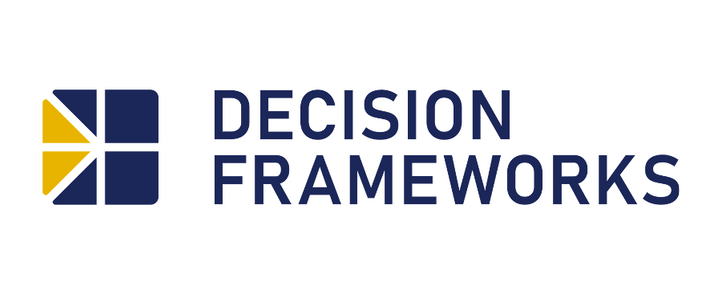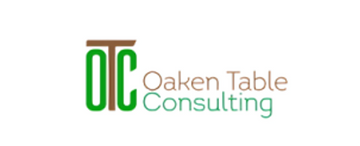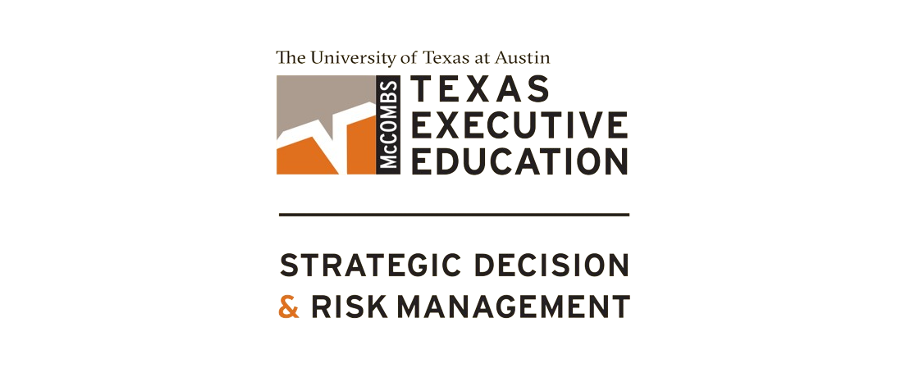Day 3 Agenda & Speakers
April 18, 2024
The information presented in this publication, including but not limited to the 2024 SDP Annual Conference agenda, is subject to change without prior notice. While every effort has been made to ensure the accuracy and timeliness of the details provided, unforeseen circumstances, scheduling adjustments, or other factors beyond our control may impact the final agenda.
Attendees are advised to regularly check the official conference website, communication channels, and announcements for the most up-to-date information. SDP reserves the right to modify, add, or remove sessions, speakers, or any other aspects of the conference program as deemed necessary.
Session 1

Application of Scenario Thinking for Offshore Wind Development in the US
April 18, 2024 8:30am - April 18, 2024 9:15am
Click here to download PDF copy of presentation
Speaker: Brendon Keinath (RWE Offshore Wind US)
Abstract:
In 2021, the Biden-Harris administration set a goal of deploying 30 gigawatts of offshore wind by 2030 and 110 gigawatts by 2050. The first commercial scale wind farms in the US are currently being installed off the East Coast and the industry is at a fever pitch. That said, there is still a significant amount of uncertainty around achieving these goals several decades out. In this case study, Decision Quality methods in Scenario Thinking were applied to understand key drivers (e.g., political, technical, supply chain, etc.) and develop future worlds to gain insights for circumstances where these goals are exceeded, met or missed in order to inform future planning.more
Why decision quality is critical for resilient, sustainable and future-ready energy supply chains
April 18, 2024 9:15am - April 18, 2024 10am
Click here to download PDF copy of presentation
Speaker: Sri Vaidyanathan (Shell)
Abstract:
Global energy supply chains, historically driven by financial efficiency whose fragility was brought to focus during the pandemic. The pandemic and supply chain chokes of the recent years has exposed the vulnerability of these supply chains. Considered together with the need for decisive actions towards a net-zero future, structure and priorities within global supply chains are in urgent need of reconsideration.
Supply chains are essentially networks of various organizations, including suppliers, manufacturers, and retailers, aiming to deliver products or services to the end consumer. When these products cross multiple international boundaries like in complex-energy supply chains, the chain becomes global, bringing about interdependencies among the organizations.
While the laser focus on financial efficiency has offered benefits in the past, changing consumer preferences, investor and regulatory pressures will demand that together with financial efficiency decision-making within organizations must also include considerations of sustainability, human rights and other factors to push for resiliency and sustainability.more

Case Study
An overview of the Descriptive Benefit-Risk Framework for New Drug Approval Decisions
April 18, 2024 8:15am - April 18, 2024 8:45am
Click here to download PDF copy of presentation
Speaker: Dr. Hong Yang (FDA, Center for Drug Evaluation and Research)
Abstract:
Medical product decision-making at FDA is a complex process involving large, multi-disciplinary teams, voluminous streams of scientific information, regulatory requirements, and diverse external stakeholders. Focusing on Agency decision-making at the time of initial marketing authorization, this session will provide an overview of the principles of benefit-risk assessment used by the three medical product centers and demonstrate how benefit-risk assessment, a subset of decision analysis, informs regulatory decision-making. Illustrative case examples showing the spectrum of decision analysis approaches used will be provided as well as information useful to product sponsors. Dr. Lackey from the Center for Drug Evaluation and Research (CDER), will provide an overview of the descriptive Benefit-Risk Framework for new drug approval decisions as well as the Benefit-Risk Guidance for Industry. This talk will present a case study showing how regulators approached the approval decision, how the principles in the Guidance are applied, and explore some key areas of concern and describe how those were resolved. Dr. Yang, from the Center for Biologics Evaluation and Research (CBER), will present a case example from a recent vaccine approval. This example will explore regulatory challenges and how the FDA Benefit-Risk Framework, real-world data and quantitative benefit-risk modeling are used to support the decision making. Dr. Gebben, from the Center for Devices and Radiologic Health (CDRH), will discuss how patient preference information is utilized by the Center as well as guidance for industry on collection and submission of preference information. This talk will highlight how patient preferences are integrated into regulatory decision-making, including the use of preference techniques (discrete choice experiments, threshold technique, etc.) to gain insights. The session will close with a panel discussion.more
A Recent Vaccine Approval
April 18, 2024 8:45am - April 18, 2024 9:30am
Click here to download PDF copy of presentation
Speaker: Leila Lackey (FDA, Center for Drug Evaluation and Research)
Abstract:
Medical product decision-making at FDA is a complex process involving large, multi-disciplinary teams, voluminous streams of scientific information, regulatory requirements, and diverse external stakeholders. Focusing on Agency decision-making at the time of initial marketing authorization, this session will provide an overview of the principles of benefit-risk assessment used by the three medical product centers and demonstrate how benefit-risk assessment, a subset of decision analysis, informs regulatory decision-making. Illustrative case examples showing the spectrum of decision analysis approaches used will be provided as well as information useful to product sponsors. Dr. Lackey from the Center for Drug Evaluation and Research (CDER), will provide an overview of the descriptive Benefit-Risk Framework for new drug approval decisions as well as the Benefit-Risk Guidance for Industry. This talk will present a case study showing how regulators approached the approval decision, how the principles in the Guidance are applied, and explore some key areas of concern and describe how those were resolved. Dr. Yang, from the Center for Biologics Evaluation and Research (CBER), will present a case example from a recent vaccine approval. This example will explore regulatory challenges and how the FDA Benefit-Risk Framework, real-world data and quantitative benefit-risk modeling are used to support the decision making. Dr. Gebben, from the Center for Devices and Radiologic Health (CDRH), will discuss how patient preference information is utilized by the Center as well as guidance for industry on collection and submission of preference information. This talk will highlight how patient preferences are integrated into regulatory decision-making, including the use of preference techniques (discrete choice experiments, threshold technique, etc.) to gain insights. The session will close with a panel discussion.more
How Patient Preference Information is Used by the Center for Devices and Radiological Health
April 18, 2024 9:30am - April 18, 2024 10am
Click here to download PDF copy of presentation
Author: Dr. Dave Gebben
Co-Presenting: Dr. Sara Eggers (FDA, Center for Drug Evaluation and Research)
Abstract:
Medical product decision-making at FDA is a complex process involving large, multi-disciplinary teams, voluminous streams of scientific information, regulatory requirements, and diverse external stakeholders. Focusing on Agency decision-making at the time of initial marketing authorization, this session will provide an overview of the principles of benefit-risk assessment used by the three medical product centers and demonstrate how benefit-risk assessment, a subset of decision analysis, informs regulatory decision-making. Illustrative case examples showing the spectrum of decision analysis approaches used will be provided as well as information useful to product sponsors. Dr. Lackey from the Center for Drug Evaluation and Research (CDER), will provide an overview of the descriptive Benefit-Risk Framework for new drug approval decisions as well as the Benefit-Risk Guidance for Industry. This talk will present a case study showing how regulators approached the approval decision, how the principles in the Guidance are applied, and explore some key areas of concern and describe how those were resolved. Dr. Yang, from the Center for Biologics Evaluation and Research (CBER), will present a case example from a recent vaccine approval. This example will explore regulatory challenges and how the FDA Benefit-Risk Framework, real-world data and quantitative benefit-risk modeling are used to support the decision making. Dr. Gebben, from the Center for Devices and Radiologic Health (CDRH), will discuss how patient preference information is utilized by the Center as well as guidance for industry on collection and submission of preference information. This talk will highlight how patient preferences are integrated into regulatory decision-making, including the use of preference techniques (discrete choice experiments, threshold technique, etc.) to gain insights. The session will close with a panel discussion.more

Personal & Societal Decisions
MODA for Personal Decisions
April 18, 2024 8:30am - April 18, 2024 9am
Click here to download PDF copy of presentation
Speaker: Eric Johnson (GSK)
Abstract:
We often have many objectives when we face big personal decisions like buying a house or car. If the information and judgments are all available, the basic data and logic for a multi-objective analysis can be captured in a simple grid in a spreadsheet. But if we are in an iterative process of information framing and gathering, the considerations and links to source data may get lost in the shuffle (leading to rework), and the tool may not give high-level insights (leading to poorly focused investigation). In this talk, I show some design ideas for a MODA spreadsheet that address these issues, with examples from my own house and car purchase decisions.more
Extending Good Decision Making Skills Beyond the Workplace | Facilitated Discussion with Q&A
April 18, 2024 9am - April 18, 2024 10am
Click here to download PDF copy of presentation
Co-Chairs: Amy Day (Clarity4Action.Org) & Stefanie McLaney (Decision Education Foundation)
Panel: Steve Begg (The University of Adelaide), Terry Karner (Astellas), Kuno Huisman (ASML)
Abstract:
Decision Professionals know the value of DQ in their own lives and careers, yet many would like to help others learn these effective tools. This session will bring together Decision Professionals who have acted on that impulse with encouraging results. Participants will gain insights from these professionals, who will share their experiences and methodologies in imparting decision-making skills to diverse groups such as youth, parents, and educators. The focus will be on practical applications within educational settings, community organizations, and through strategic partnerships. Additionally, the session will feature an interactive panel discussion, accompanied by Q&A designed to address specific questions, and facilitate a deeper understanding for attendees looking to adapt these practices in their respective areas of influence.more
Session 2

Leading through uncertainty in the energy sector: How organizational transformation / evolution is influencing decisions in the energy field
April 18, 2024 10:30am - April 18, 2024 11:15am
Click here to download PDF copy of presentation
Speaker: George Nsoribe (Chevron)
Abstract:
With the global clamor for lower carbon emissions, huge volatility in oil market prices, cost of exploration and production, technology changes and political factors in regions where oil is found in commercial quantities, the near- permanent pseudo war between USA and China to the actual war in Eastern Europe, It’s the dawn of a new era in the energy industry and realizing it can no longer be business as usual, industry chiefs need to transform themselves and their organizations to succeed. To further call out the situation, in 2015 the United Nations (UN) developed a set of sustainable development goals, one of which was to ensure access to affordable, reliable, sustainable, and modern energy for all by 2030 with one of the targets being to increase substantially the share of renewable energy in the global energy mix by then. This target puts pressure on country governments around the world to cut fossil fuel use and develop renewable energy sources. Now, with renewable energies currently being a very little portion of the mix for most global energy companies, it means the need for organizational transformation is urgent if the goal of remaining major contributors to the energy that powers the world and beat the competition must be achieved. This study will identify specific areas of uncertainties in this transformation, how the industry has responded as well as the impact it has brought. It will look at how decision making has been identified as one of the strategic imperatives alongside digital, performance management and others to help win in every environment. Based on this analysis, it will derive guidelines for firms and investors to reduce uncertainties on the path to increase renewables in the energy mix as well as support firms’ decision-making under these uncertainties.more
Organizational Transformation Challenge: End-to-end Integration of DQ in Large Capital Projects
April 18, 2024 11:15am - April 18, 2024 12pm
Click here to download PDF copy of presentation
Speaker: Carl Spetzler (Strategic Decisions Group)
Abstract:
Large Capital Projects present unique challenges that are being addressed with IPD (Integrated Project Delivery). Full adoption and integration of DQ within IPD assures maximum value in large projects. The organizational transformation needs are unique since project organizations are in constant transition throughout the project life cycle. We will review what it takes to achieve success in this transformation.more

New Approaches to Pre- and Post- Revenue Asset Valuation in Drug Development
April 18, 2024 10:30am - April 18, 2024 11am
Click here to download PDF copy of presentation
Speaker: Michael Kane (Telperian)
Abstract:
Accurate valuations of both pre- and post-revenue drug assets plays an instrumental role in a broad range of operations and decisions the biotechnology and pharmaceutical sectors.They inform decisions made not only by pharmaceutical companies but also by a range of stakeholders including venture capitalists, private equity firms, and others. An accurate valuation provides a reliable forecast of the potential return on investment, which directly influences where and how capital is allocated within the industry. It forms the basis of strategic investment decisions, making it possible to identify the most promising opportunities and understand which investments are more likely to yield a satisfactory return. In this talk we present models designed to estimate future sales of post-revenue and pre-revenue assets. The former generates distributional estimates of each asset’s cumulative sales. Pre-revenue assets can then be valued by using sales estimates for similar post-revenue assets in the calculation of the net present value. When applied to Pfizer’s portfolio of post-revenue assets, this model accurately projects the company’s market capitalization—defined as the product of its share price and the number of outstanding shares—to within a 10% margin.more
The New Zealand Drug Harms Study: Use of multi criteria decision analysis to consider social and individual harms from illegal drugs
April 18, 2024 11am - April 18, 2024 11:30am
Click here to download PDF copy of presentation
Speaker: Paul Gordon (Catalyze)
Abstract:
This presentation will show how an MCDA decision modelling approach, coupled with a collaborative process was used to determine and understand the range and extent of harms that 23 drugs has across New Zealand. The drug harms were evaluated by a diverse group of experts and considered both the whole-of-population harms and harms specific to youth (12-17 years old) across 17 distinct harms. The harms considered covered both harms to the user, and harms to others around the user.
The background and history of the approach and methodology will be presented, including a summary of a similar earlier study in Australia, and will explore how this approach could provide valuable insights into how to think about drug harms in general.more
Prior Elicitation as input to Phase 3 PTS Calculation
April 18, 2024 11:30am - April 18, 2024 12pm
Click here to download PDF copy of presentation
Speaker: Niki Arya (AstraZeneca)
Abstract:
We utilized expert elicitation to determine the prior assumptions needed to calculate the probability of technical success (PTS) for a planned large outcome study. The primary endpoint for the large outcome study is a composite endpoint with subcomponents that are major events (deaths, hospitalizations, etc.). A presentation was put together summarizing the results from previous trials with our drug and other drugs within the same medication class. In these trials, a similar composite endpoint and the individual subcomponents were analyzed in slightly different populations to help shape prior assumptions about the effects of our drug on the primary endpoint proposed in our large outcome study. This presentation was shared with a panel of 5 experts in this field who then used these results to predict the expected treatment effect on the primary composite endpoint and each of its subcomponents in the population proposed for the planned large outcome study. These predictions were then pooled together and weighted appropriately based on the expertise of the panelist to form a prior distribution which was then used to determine the PTS for the planned large outcome study. In the presentation for the Society of Decision Professionals conference, we will go into the details of the expert elicitation process, how each expert’s predictions were incorporated into the prior assumptions, and how the prior assumptions were used to determine the PTS.more

Algorithmically-Aided Decision Making
Augmenting AI with Decision Intelligence to Accelerate Business
April 18, 2024 10:30am - April 18, 2024 11am
Click here to download PDF copy of presentation
Speaker: Fadi Micaelian (Sparkdit)
Abstract:
We will explore in this use case how the leading aviation and aerospace giant was able to solve the problem of airplane swapping by dynamically optimizing their business objectives: Traveler Satisfaction, Airline Revenue, and Airline Expenses. The problem could not be tackled with traditional AI alone as it lacked both causality and the ability of taking into account the constantly changing market needs and requirements. We will also briefly touch on how the same AI augmentation technology, rooted in Decision Science, is yielding 2x better eCommerce recommendations than Content Filtering, or AI based Collaborative Filtering, without ever intruding on consumer privacy.more
Explainable AI: How XAI Puts the End User Back in the Driver's Seat
April 18, 2024 11am - April 18, 2024 11:30am
Click here to download PDF copy of presentation
Speaker: Patrick Elder (ECS Federal)
Abstract:
In the era of Artificial Intelligence (AI) and machine learning, decision makers and decision analysts can be caught between the desire to leverage new technologies and the seemingly inherent opacity that comes with complex models. Without the ability to explain and ultimately justify the decision based on the results from AI models, these end-users can feel like passengers on a journey without a clear understanding of the route or destination. However, the advent of Explainable AI (XAI) promises to transform this landscape by providing transparency and interpretability in AI systems.
This session briefing at the Society of Decision Professionals Conference will delve into the thought-provoking article titled "Explainable AI: How XAI Puts the End User Back in the Driver's Seat" (https://ecstech.com/ecs-insight/blog/explainable-ai-how-xai-puts-the-end-user-back-in-the-drivers-seat/), authored by industry expert Patrick Elder. The session with explore concepts discussed in the article and how they can be applied to AI to improve the ability of decision makers and decision analysts to use these technologies appropriately and improve decision quality.more
Validation Challenges in AI-Based Decision Support
April 18, 2024 11:30am - April 18, 2024 12pm
Click here to download PDF copy of presentation
Speaker: Doug Samuelson (The Dupuy Institute)
Abstract:
Artificial Intelligence (AI), offers promising uses in decision-making, as support for both suggesting courses of action and evaluating likely outcomes. Especially with the recent increasing interest in conflicts that do not focus exclusively on direct military conflict, computer-supported assistance in assessing “what might happen if” is becoming more and more valuable, if not essential. However, use of such support involves some hazards well worth noting. Among these are: the AI’s extensive data requirements; the difficulty of assessing the credibility of the AI’s outputs; the difficulty, for some systems, of making minor adjustments and re-running the analysis (the very capability one would hope these systems would enhance); all too often, the opacity of the reasoning the AI employed; and some particular legal and operational difficulties of dealing with software providers. Most important, there is an intractable limitation: AI cannot infer context nor make inferences about matter entirely outside the data it as had the opportunity to ingest. Also, AI cannot be validated without an observation-based data set, more reliable than the AI, against which to compare the AI’s results. However, even observation-based data sets entail inherent uncertainty. Relying heavily and uncritically on such analyses has a high probability of leading to disaster. We discuss these issues in the context of some actual professional wargaming experiences.more
Session 3

Case Study
DECISION QUALITY FOR EXPLORATION WELL PATH OPTIMIZATION - A CASE STUDY FROM THE VIENNA BASIN, AUSTRIA
April 18, 2024 1pm - April 18, 2024 1:45pm
Click here to download PDF copy of presentation
Speaker: Jost Püttmann & Anna Kruk-Michot (OMV)
Abstract:
OMV is a Vienna based energy company with an Upstream division and Exploration & Production activities in 13 countries. In November 2023 OMV faced a complex challenge when they commenced drilling a 5500m deep well, Strasshof T17, in the Vienna Basin, Austria. The project aimed to explore a complex subsurface structure, poorly imaged on seismic data. The initial plan involved drilling an expensive pilot hole before the final sidetrack to mitigate subsurface uncertainties.
To address this challenging situation, OMV applied a Decision Quality (DQ) framework which they executed on the critical path within one week. The workflow included defining stakeholders, framing the problem, establishing the drilling path, evaluating different subsurface scenarios, and presenting findings to the decision board.more
Know your audience: Effective communication of VOI across functional business units
April 18, 2024 1:45pm - April 18, 2024 2:30pm
"Presentation not available"
Speaker: Heather Stang (Aera Energy)
Abstract:
The oil and gas industry in California is challenged due to the ever-changing regulatory environment at the state and county level, resulting in a near-term hiatus in new well and workover permitting. To continue value generation, operators must rapidly adapt their strategies to this shifting landscape and refocus on brownfield optimization. A value of information approach is being utilized in an attempt to align value metrics across functional business units to generate the highest return on investments.more

Round Table Discussion

New Perspectives on DQ
Let’s Talk Strategy Development and Facilitation
April 18, 2024 1pm - April 18, 2024 1:30pm
Click here to download PDF copy of presentation
Speaker: Bill Haskett (Haskett Consulting International)
Abstract:
Do you really have a strategy? Strategy development and implementation support is a different flavour of decision support from that provided within most projects. While our Decision Quality principles remain intact, a shift that emphasizes greater context, positioning, and pathway/vehicle is required. The Objective emphasis shifts to access, materiality, positioning, control, and preservation. Hambrick and Fredrickson developed an excellent approach to strategy development in the early 2000’s citing five components (Location, Vehicles, Staging, Differentiation, and Economic Logic) but it deserves updating from our decision and facilitation perspective. As guides to strategy development, we must ensure a greater emphasis on effective implementation. For example, it isn’t good enough to only differentiate. Competitive advantage (offensive and defensive) must have direction and “stickiness”. The sub-elements of Materiality, Access, Differentiation, and Preservation lead to a critical success element, Control. All elements support objective fulfilment of a desired preferred/prioritized objectives.more
Hammering screws – How economic metrics hamper the transition to a sustainable society
April 18, 2024 1:30pm - April 18, 2024 2pm
"Presentation not available"
Speaker: Patrick Leach (Independent Strategy Consultant)
Abstract:
The goal of sustainability efforts is to strike the right balance between two competing objectives: meeting the needs of the current population, and allowing (or even enhancing) the ability of future populations to meet their needs. Using economic metrics to decide what sustainability initiatives to pursue undermines this objective for several reasons. First, all commonly used economic metrics are maximized by pulling as many benefits as far forward in time as possible, and pushing as many costs as far into the future as possible. They are thus strongly biased toward enjoying ourselves today at the expense of tomorrow.
Second, our entire system of free-market economics is driven by growth – ever-increasing consumption of resources (GDP growth) and an ever-larger human population (witness economists fretting over the drop in fertility rates in wealthy nations). These are clearly unsustainable. We live on a finite planet. Never-ending growth of anything within a finite system will eventually cause the system to break down.more
Back to Basics: Why Bayes Matters in Decision Analysis
April 18, 2024 2pm - April 18, 2024 2:30pm
Click here to download PDF copy of presentation
Speaker: Sheldon Bernard (A440 Management)
Abstract:
This conversation focuses on elucidating the fundamental role of the Bayesian framework in decision analysis, a crucial discipline and toolkit for navigating decision-making under uncertainty. Tracing back to our roots, we aim to unfold the connection between Bayesian Decision Theory and Inference and its relation to Decision Analysis. By offering thought-provoking insights (via case study) into the broader picture and practical applications of Bayesian Inference, we extend our exploration to its capacity for solving complex business problems with data. We will discuss how the Bayesian foundation provides the path to integrate Behavioral Economics, Decision Analysis, and Data Science. The aim is to provide perspective on how a Bayesian framework can help equip decision-makers with strategies to diminish bias and augment decision quality.more

Interactive Session
MINI Innovation Interest Group
April 18, 2024 3pm - April 18, 2024 4:30pm
Facilitated By: Wayne Fisher & Dave Matheson

















